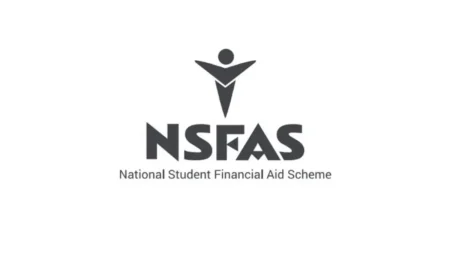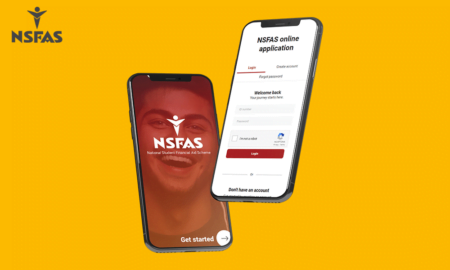As the NSFAS application 2025 process opens, many students and their families are eager to apply for funding to pursue their studies at South African universities and TVET colleges. However, with the application process comes a mix of information, and it’s important to separate fact from fiction. Below are five common myths and five truths about NSFAS that you need to know before you start your application.
In this article, we will explore five common myths and five key truths about the NSFAS Application 2025 to help you understand what you need to know before applying.
5 Common Myths About NSFAS Application 2025
Myth 1: “NSFAS Only Funds University Students”
Truth: NSFAS provides financial aid to both university and TVET (Technical and Vocational Education and Training) college students.
A prevalent misconception is that NSFAS is solely for students attending traditional universities. However, NSFAS also supports students studying at TVET colleges. This ensures that financial aid is available for students pursuing vocational qualifications, which are critical for many in-demand industries. Whether you’re aiming to enroll at a university or a TVET college, you are eligible to apply for NSFAS funding, provided you meet the financial requirements.
Myth 2: “You Need to Have Straight-A Marks to Qualify for NSFAS”
Truth: NSFAS is primarily based on financial need, not academic merit.
Many students believe that only top academic achievers are eligible for NSFAS funding, but this is not true. The scheme is designed to assist students from disadvantaged financial backgrounds, with the key qualifying factor being household income. If your household earns less than R350,000 per year (or R600,000 for students with disabilities), you can apply for NSFAS, regardless of your academic performance in high school. However, you must pass at least 50% of your courses each year to continue receiving funding.
Myth 3: “If Your Parents Own a Car or House, You Can’t Apply”
Truth: NSFAS assesses household income, not assets.
Another common myth is that ownership of assets like a car or house automatically disqualifies a student from receiving NSFAS funding. This is not true. The primary consideration for NSFAS is household income. As long as your household income is below the set threshold, ownership of property or a vehicle does not affect your eligibility. It’s important to submit accurate financial information during your application to avoid any issues.
Myth 4: “NSFAS Covers All Costs Without Limits”
Truth: NSFAS covers most educational expenses, but not everything.
While NSFAS does provide comprehensive funding that covers tuition, accommodation, study materials, and a living allowance, it doesn’t cover every possible expense a student may incur. For example, NSFAS does not cover luxury items, extracurricular costs, or some additional personal expenses like off-campus transport. Students need to budget for these extra costs, especially if they live far from their campus or have unique personal needs that fall outside the funding coverage.
Myth 5: “Once Approved, You’ll Receive Funding Throughout Your Study Period”
Truth: NSFAS funding must be renewed annually and is dependent on academic progress.
Many students mistakenly think that once their application is approved, they are guaranteed funding for the entire duration of their studies. However, NSFAS requires students to meet certain academic criteria to maintain their funding. To continue receiving aid, students must pass at least 50% of their modules and demonstrate that they are progressing toward completing their qualifications. If a student fails to meet these requirements, they risk losing their funding for the following academic year.
5 Truths About NSFAS
Truth 1: “There’s an Income Threshold for NSFAS Eligibility”
For students considering applying for NSFAS in 2025, it’s essential to know that household income is a key eligibility criterion. To qualify, your combined household income must be R350,000 or less per year. This applies to both university and TVET students. Additionally, for students living with disabilities, the threshold is higher—R600,000 per year. Knowing this income guideline is important to determine whether you should apply.
Truth 2: “NSFAS Covers a Broad Range of Educational Expenses”
NSFAS offers significant financial assistance, covering essential student expenses such as tuition fees, accommodation (either university-provided or a capped amount for private accommodation), study materials like textbooks, and a living allowance. For TVET college students, NSFAS may also provide transport allowances if the student lives more than 10km from the institution. This helps reduce the financial strain on students and their families.
Truth 3: “NSFAS Can Be Either a Loan or a Bursary”
NSFAS operates as both a loan and a bursary, depending on the academic performance of the student. If you complete your qualification and meet the necessary academic standards, NSFAS converts the funding into a bursary, meaning you won’t need to pay it back. However, if you fail to meet the academic criteria or drop out of your course, you may be required to repay a portion or all of the funding. This structure encourages students to remain committed to their studies.
Truth 4: “The Application Process Is Fully Online”
As part of its modernization efforts, NSFAS offers a convenient online application process. Applicants can visit the official NSFAS website (www.nsfas.org.za) to create a myNSFAS account and submit their applications online. This makes the process more accessible and easier to track. For those without access to reliable internet, NSFAS has also partnered with various institutions to offer in-person application support at TVET colleges and universities.
Truth 5: “NSFAS Has Strict Deadlines—Late Applications Won’t Be Considered”
A crucial truth about NSFAS is that the application process is time-sensitive. For the 2025 academic year, applications are expected to open in September 2024 and close in January 2025. Missing the deadline means you’ll miss out on financial aid for that academic year. It’s vital to apply as early as possible and ensure you have all the necessary documents ready before the application period ends.
Read More: 5 Common NSFAS Application Mistakes and How to Avoid Them
FAQs about NSFAS Application 2025
Q: Who qualifies for NSFAS funding in 2025?
A: Any South African citizen who plans to study at a public university or TVET college and whose combined household income is R350,000 or less annually (R600,000 for students with disabilities) is eligible to apply for NSFAS.
Q: How do I apply for NSFAS in 2025?
A: You can apply online through the official NSFAS website by creating a myNSFAS account and submitting the required documents. Alternatively, assistance is available at various TVET colleges and universities.
Q: Does NSFAS fund postgraduate studies?
A: No, NSFAS primarily funds undergraduate qualifications. However, certain postgraduate qualifications, such as postgraduate diplomas in teaching, are funded. It’s best to check the NSFAS website for specific eligibility requirements.
Q: When will NSFAS applications for 2025 open?
A: NSFAS applications for the 2025 academic year have opened in September 2024 and close in January 2025. Be sure to apply early to avoid missing the deadline.
Q: What documents do I need to apply for NSFAS?
A: You will need a certified copy of your South African ID, certified copies of your parents’ or guardians’ ID documents, proof of household income (payslips or affidavits if unemployed), and disability documentation if applicable.
Q: Can I apply if my household income is just above the R350,000 threshold?
A: No, if your household income exceeds R350,000 per year, you are not eligible for NSFAS funding unless you fall under the exception for students with disabilities, where the threshold is R600,000.
Q: Will NSFAS cover all my expenses?
A: NSFAS covers tuition fees, accommodation, a living allowance, and study materials. However, some additional expenses, such as personal or luxury items, are not covered. Be sure to budget for any extra costs you may incur.
Q: What happens if I fail a module or do not pass 50% of my courses?
A: If you fail to pass at least 50% of your courses, NSFAS may suspend your funding for the following academic year. It’s essential to stay committed to your studies to maintain your funding.
The NSFAS Application 2025 is a crucial opportunity for students from financially disadvantaged backgrounds to access higher education. By debunking common myths and focusing on the truths, students can approach the application process with clarity and confidence. Remember to stay informed, meet all the requirements, and keep an eye on the application deadlines to increase your chances of receiving financial aid for your studies.










